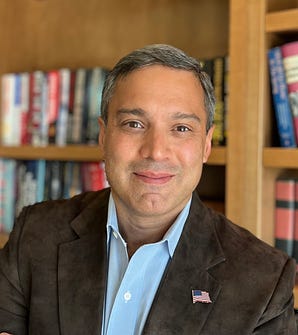|
 |
From The Archives…
The article below was written shortly after the publication of my first book, BOOMBUSTOLOGY: Spotting Financial Bubbles Before They Burst. The article was my attempt to generalize the approach I described in the book to non-financial decision-making. It was published on the Harvard Business Review website and led to a surge of interest in my work around the generalist approach. I’d welcome any feedback!
Best,
Vikram
ORIGINAL (2012) POST: https://hbr.org/2012/06/all-hail-the-generalist
We have become a society of specialists. Business thinkers point to “domain expertise” as an enduring source of advantage in today’s competitive environment. The logic is straightforward: learn more about your function, acquire “expert” status, and you’ll go further in your career.
But what if this approach is no longer valid? Corporations around the world have come to value expertise, and in so doing, have created a collection of individuals studying bark. There are many who have deeply studied its nooks, grooves, coloration, and texture. Few have developed the understanding that the bark is merely the outermost layer of a tree. Fewer still understand the tree is embedded in a forest.
Approximately 2,700 years ago, the Greek poet Archilochus wrote that “The fox knows many things, but the hedgehog knows one big thing.” Isaiah Berlin’s 1953 essay “The Fox and the Hedgehog” contrasts hedgehogs that “relate everything to a single, central vision” with foxes who “pursue many ends connected…if at all, only in some de facto way.” It’s really a story of specialists vs. generalists.
In the six decades since Berlin’s essay was published, hedgehogs have come to dominate academia, medicine, finance, law, and many other professional domains. Specialists with deep expertise have ruled the roost, climbing to higher and higher positions. To advance in one’s career, it was most efficient to specialize.
For various reasons, though, the specialist era is waning. The future may belong to the generalist. Why’s that? To begin, our highly interconnected and global economy means that seemingly unrelated developments can affect each other. Consider the Miami condo market, which has rebounded quite nicely since 2008 on the back of strong demand from Latin American buyers. But perhaps a slowdown in China, which can take away the “bid” for certain industrial commodities, might adversely affect many of the Latin American extraction-based companies, countries, and economies. How many real estate professionals in Miami are closely watching Chinese economic developments?
Secondly, specialists toil within a singular tradition and apply formulaic solutions to situations that are rarely well-defined. This often results in intellectual acrobatics to justify one’s perspective in the face of conflicting data. Think about Alan Greenspan’s public admission of “finding a flaw” in his worldview. Academics and serious economists were dogmatically dedicated to the efficient market hypothesis — contributing to the inflation of an unprecedented credit bubble between 2001 and 2007.
Finally, there appears to be reasonable and robust data suggesting that generalists are better at navigating uncertainty. Professor Phillip Tetlock conducted a 20+ year study of 284 professional forecasters. He asked them to predict the probability of various occurrences both within and outside of their areas of expertise.
Analysis of the 80,000+ forecasts found that experts are less accurate predictors than non-experts in their area of expertise. Tetlock’s conclusion: when seeking accuracy of predictions, it is better to turn to those like “Berlin’s prototypical fox, those who know many little things, draw from an eclectic array of traditions, and accept ambiguity and contradictions.” Ideological reliance on a single perspective appears detrimental to one’s ability to successfully navigate vague or poorly-defined situations (which are more prevalent today than ever before).
The future has always been uncertain, but our ability to navigate it has been impaired by an increasing focus on studying bark. The closer you are to the material, the more likely you are to believe it. In psychology jargon, you anchor on your own beliefs and insufficiently adjust from them. In more straightforward language, a man with a hammer is more likely to see nails than one without a hammer. Expertise means being closer to the bark, and less likely to see ways in which your perspective may warrant adjustment. In today’s uncertain environment, breadth of perspective trumps depth of knowledge.
The declining returns to expertise have implications at the national, company, and even individual level. A collection of specialists creates a less flexible labor force, one that requires “retraining” with technological developments creating constantly shifting human resource needs. In this regard, the recent emphasis in American education on “job-specific” skills is disturbing. Within a company, employees skilled in numerous functions are more valuable as management can dynamically adjust their roles. Many forward-looking companies are specifically mandating multi-functional experience as a requirement for career progress. Finally, individuals should manage their careers around obtaining a diversity of geographic and functional experiences. Professionals armed with the analytical capabilities (e.g. basic statistical skills, critical reasoning, etc.) developed via these experiences will fare particularly well when competing against others more focused on domain-specific skill development.
The time has come to acknowledge expertise as overvalued. There is no question that expertise and hedgehog logic are appropriate in certain domains (i.e. hard sciences), but they certainly appear less fitting for domains plagued with uncertainty, ambiguity, and poorly-defined dynamics (i.e. social sciences, business, etc.). The time has come for leaders to embrace the power of foxy thinking.
Vikram Mansharamani is a lecturer at Yale University, a Tiger21 Scholar, and author of Boombustology: Spotting Financial Bubbles Before They Burst (Wiley, 2011).
VIKRAM MANSHARAMANI is an entrepreneur, consultant, scholar, neighbor, husband, father, volunteer, and professional generalist who thinks in multiple-dimensions and looks beyond the short-term. Self-taught to think around corners and connect original dots, he spends his time speaking with global leaders in business, government, academia, and journalism. LinkedIn has twice listed him as its #1 Top Voice in Money & Finance, and Worth profiled him as one of the 100 Most Powerful People in Global Finance. Vikram earned a PhD From MIT, has taught at Yale and Harvard, and is the author of three books, The Making of a Generalist: An Independent Thinker Finds Unconventional Success in an Uncertain World, Think for Yourself: Restoring Common Sense in an Age of Experts and Artificial Intelligence and Boombustology: Spotting Financial Bubbles Before They Burst. Vikram lives in Lincoln, New Hampshire with his wife and two children, where they can usually be found hiking or skiing.
You're currently a free subscriber to Navigating Uncertainty. For the full experience, upgrade your subscription.

